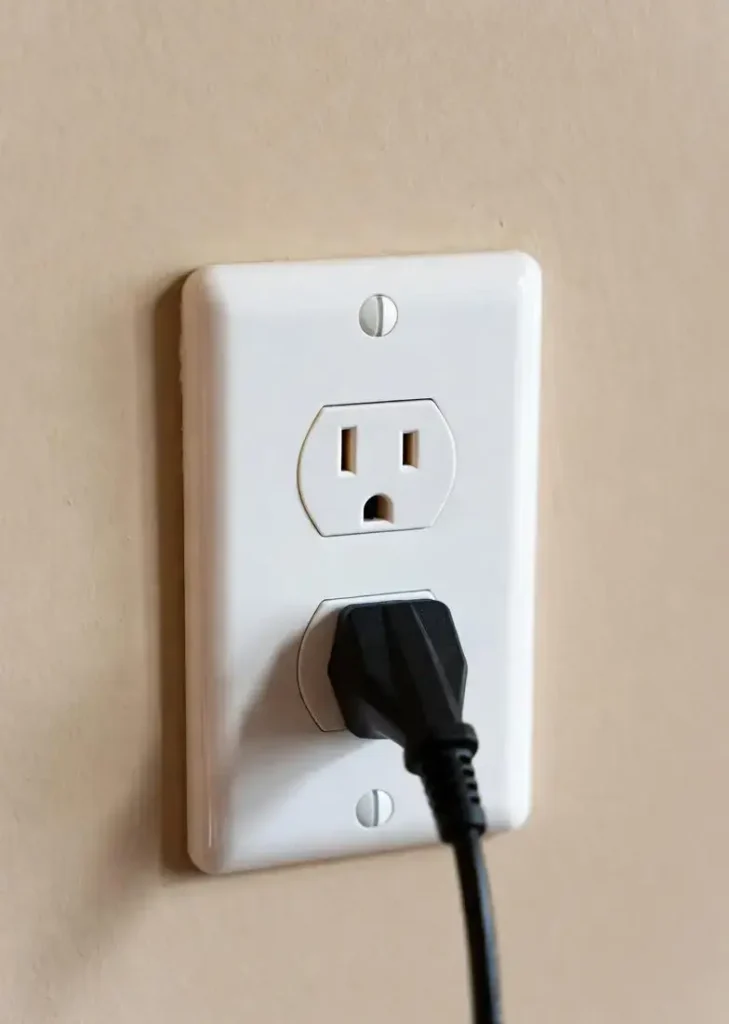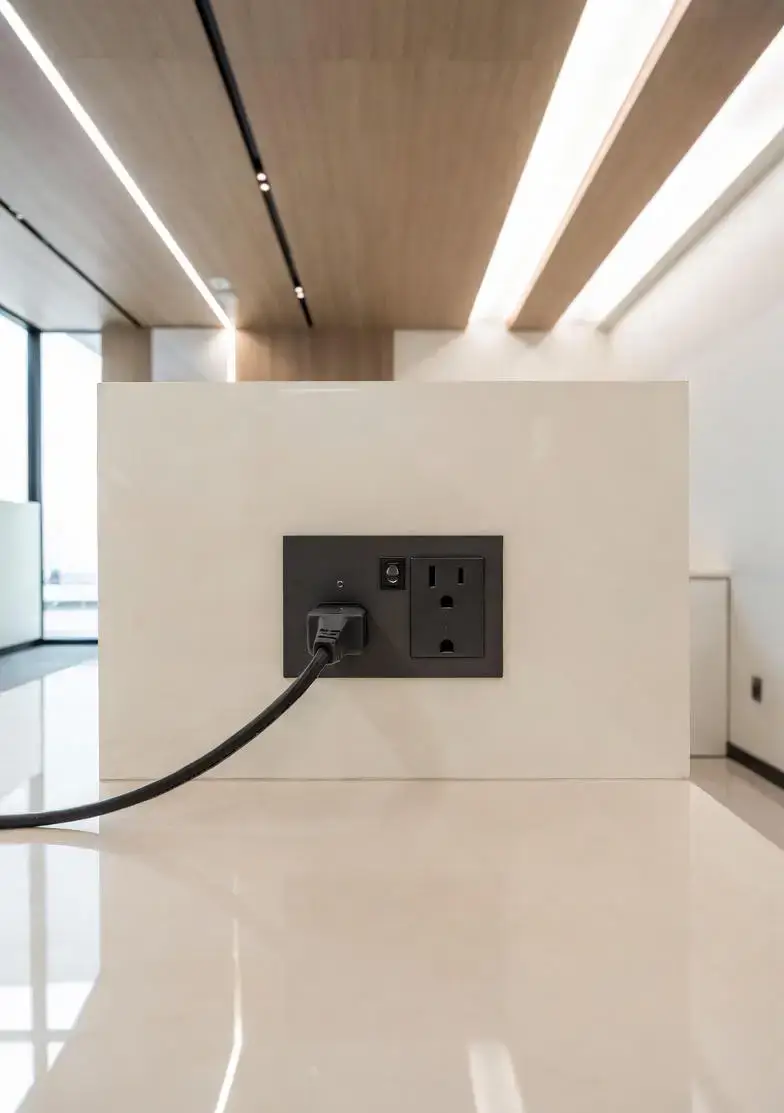Why Your Outlet Not Working Overnight
If you woke up and noticed that one of your outlets suddenly stopped working, you’re not alone. Electrical issues like this are incredibly common in Michigan homes, especially in older houses or ones that have seen a lot of appliance use over the years. The good news? Most of the time, it’s not something catastrophic—but it does mean something needs attention.
As a handyman, I’ve seen outlets fail for all sorts of reasons: tripped breakers, loose wires, or even worn-out receptacles that just give up after years of use. Let’s go over the most common reasons why your outlet not working overnight—and what you can do about it before calling in a professional.
1. The Circuit Breaker Tripped
This is the most common and easiest fix. When a breaker trips, it cuts power to protect your wiring and prevent electrical fires. Sometimes, all it takes is one overloaded circuit—like running a space heater, toaster, and hair dryer all on the same line—to flip the breaker.
What to do:
- Go to your electrical panel (usually in the basement, garage, or utility room).
- Look for a switch that’s in the middle position or slightly out of line with the others.
- Flip it all the way to the off position, then back on.
If your outlet starts working again, you’re in luck. But if it keeps tripping, that means there’s a deeper issue—like a short circuit or overloaded wiring—that needs to be checked out by an electrician or handyman.
2. A GFCI Outlet Tripped (Even in another Room)
Ground Fault Circuit Interrupter (GFCI) outlets are designed to shut off power when they detect moisture or an imbalance in current. You’ll find them in kitchens, bathrooms, garages, and outdoor areas. But here’s what most homeowners don’t realize: one GFCI outlet can control multiple outlets in different parts of the house.
So if your outlet not working overnight, check nearby GFCI outlets. Press the “Reset” button on each one to see if power returns.
If resetting it restores power, it’s a quick fix. If the GFCI keeps tripping, you could be dealing with:
- Moisture inside the outlet box
- A worn-out GFCI outlet
- Faulty wiring downstream
That’s a job best left to a licensed professional or a handyman experienced with electrical repairs.
3. A Loose or Burnt Connection
Over time, the connections inside your outlet can loosen or corrode. Every time you plug or unplug something, the metal contacts wear down a little more. Eventually, the connection becomes weak enough to stop conducting electricity properly.
In some cases, you might even smell a faint burning odor or see scorch marks on the faceplate—both warning signs that your outlet may be overheating.
Do not try to fix this yourself if you’re not experienced with electrical work. A loose wire can arc and create a fire hazard. Shut off power to that outlet and call someone qualified to inspect and replace it.
4. The Outlet Itself Went Bad
Yes, outlets do wear out—especially older ones that have been used for decades. Cheap outlets or ones exposed to high usage (like in kitchens or workshops) can fail overnight due to internal wear.
Signs your outlet is bad:
- Plugs fall out easily.
- You hear crackling or popping.
- There’s no visible damage, but no power either.
Replacing an outlet is usually a simple handyman task, but it must be done safely. The outlet should be tested to confirm it’s receiving power from the breaker and that the wiring isn’t damaged.
5. A Hidden Wiring Problem
If you’ve ruled out all the above and your outlet not working, you could be looking at a wiring issue inside the wall. This could be:
- A damaged wire caused by age or pests
- A poor connection in another outlet on the same circuit
- A bad junction in a switch or light fixture connected to that line
Wiring problems are harder to pinpoint without proper tools. That’s when calling a handyman or electrician makes sense—they can test the voltage, trace the circuit, and repair the problem safely.
6. A Power Surge or Storm Damage
If your power flickered during the night or there was a thunderstorm, a power surge might have damaged your outlet or connected devices. Surge protectors can help, but not all outlets are protected.
If multiple outlets or appliances stopped working overnight, check your surge protectors and consider adding whole-home surge protection to prevent future issues.
7. The Switch Controls the Outlet
Here’s one that surprises many homeowners: sometimes an outlet is connected to a wall switch. If the switch was accidentally flipped off, it’ll cut power to the outlet.
Try flipping any nearby switches to see if that restores power. If it does, you’ve found the culprit. To avoid confusion later, label the switch or replace the outlet so it’s always powered.

When to Call a Handyman or Electrician
If the outlet not working still after trying these checks, it’s time to bring in a professional. Electrical repairs aren’t something you want to gamble with. A small issue can quickly escalate into a shock or fire hazard.
Here’s when you shouldn’t try to DIY:
- You see scorch marks or melted plastic
- The breaker keeps tripping repeatedly
- You hear buzzing from the outlet or wall
- Lights flicker when using nearby outlets
- You’re unsure how the wiring is connected
A licensed handyman who’s familiar with electrical repair can quickly isolate the issue, replace the outlet, or rewire the connection safely.
Preventing Future Outlet Failures
A few simple habits can extend the life of your outlets and wiring:
- Don’t overload outlets with high-wattage devices.
- Replace old, worn, or cracked outlets before they fail.
- Use surge protectors for sensitive electronics.
- Schedule an electrical safety inspection every few years.
By staying proactive, you’ll avoid many of the sudden electrical failures that catch homeowners off guard.
Final Thoughts
If your outlet not working overnight, it’s usually something simple—but it’s not something to ignore. Whether it’s a tripped breaker, a faulty outlet, or bad wiring, getting it inspected quickly keeps your home safe and prevents bigger electrical problems down the road.
When in doubt, bring in a professional handyman who knows electrical systems. A quick fix now can save you hundreds later.
Need Electrical Repair Help?
Don’t take chances with faulty outlets or wiring. Call your local handyman today for safe, affordable electrical repair service.
Call Now: 313-513-1185


